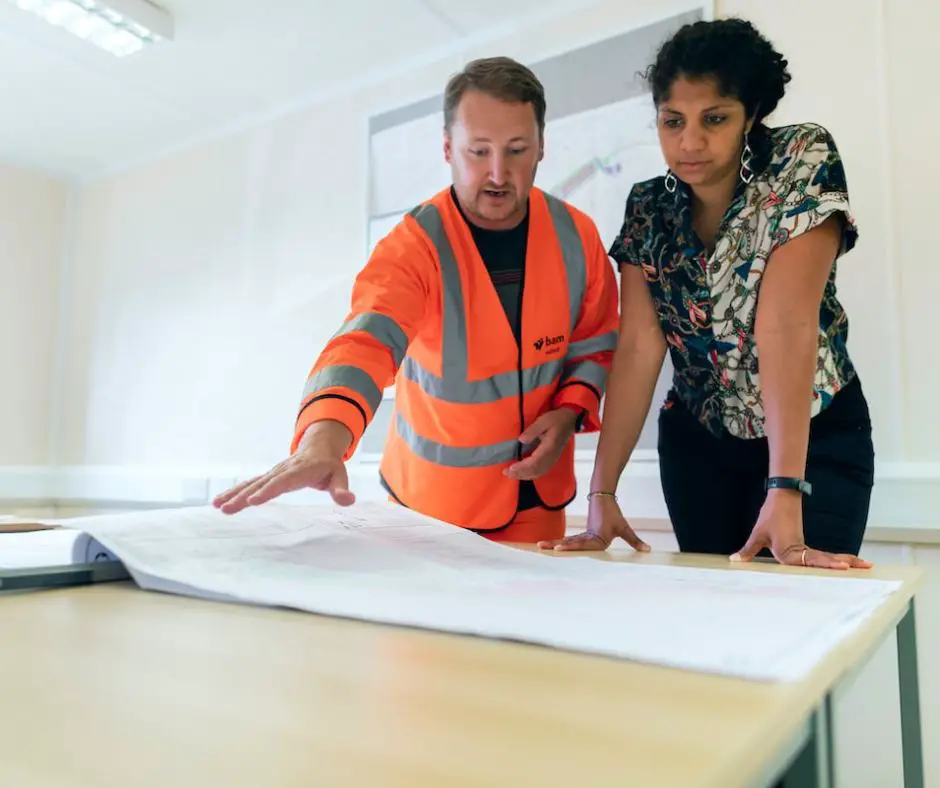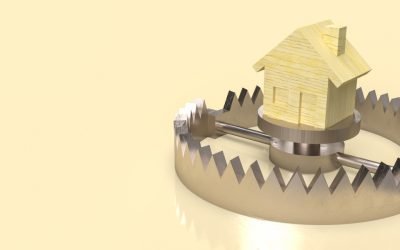Are you considering buying a house? Have you found a property that seems like a good deal but you’re not sure if it is? Navigating the property market can be daunting, particularly for first-time buyers. Knowing how to tell whether you’re getting a good deal or not is an important part of finding your dream property.
To know if you got a good deal on a house, compare the selling price to the assessed value of the property. The assessed value should be an accurate representation of what the house is actually worth. If the selling price is lower than the adjusted property value, then it could be a good deal.
Buying a house is one of the most exciting and liberating experiences life has to offer. From finding the perfect house in the right location to negotiating with vendors, it can be both thrilling and overwhelming at the same time. But don’t let this put you off – with some research and advice from experts like myself, you can find your ideal property in no time!
In this article, I want to share my expertise on how to tell if you have got a good deal on a house. Whether it’s ensuring the condition of the property meets your needs, or understanding more about local markets, I will provide practical advice on how to make sure any property purchase is worth your while. So read on and feel empowered with the knowledge to make informed decisions when shopping for your perfect investment!
Researching The Market

When it comes to buying a house, getting a good deal is key. But how do you know if you’ve got one? The answer lies in doing your research into the housing market. You’ll need to look at home prices, property values, and local amenities, as well as keeping an eye on the latest market trends.
It’s important to take the time to thoroughly investigate the area where you’re looking to buy. Have a look at recent sales figures and compare them with similar properties in the area. This way you can get an idea of what price range your property should be in. Check out local amenities too – are there any attractions or features that could boost your property’s value?
Having all this information before starting negotiations will give you greater confidence in knowing whether or not you’re getting a good deal on a house. Knowing the current market conditions will also help you decide whether now is the right time for you to buy – or if it would be better to wait until prices become more favourable.
Working With An Estate Agent
Working with an estate agent is like having a personal assistant when it comes to buying a house. An experienced agent will be able to provide invaluable advice and guidance, helping you find the right house at the right price. Here are some tips for getting the most out of your estate agent:
- Find an experienced estate agent who has expertise in your local area. Ask around for recommendations or do some research online to make sure you’re getting quality advice.
- Ask about their fees and commission – how much will they charge? Are there any hidden costs?
- Get as much information as possible from them about the property you’re interested in, such as its history, local amenities, expected rental income etc.
An experienced estate agent can be an invaluable asset when it comes to finding and assessing property value – but make sure you do your research first and get the best deal possible! With a bit of groundwork, you’ll soon have an expert on hand to help take care of all your property needs. Moving on from here, assessing property value is key in order to ensure you’re getting a good deal on a house.
Assessing Property Value
Once you have found a property that suits your needs and budget, it is time to assess its value. This is an important step in determining if you have got a good deal on the house. A property value assessment can give you an estimate of the market value of the house and provide valuable insight into whether or not it is worth purchasing.
The first step in assessing the property value of a house is to look at comparable properties in the area. Comparable properties are those that are similar in size, amenities, condition, and location to your prospective home. By looking at these houses, you will get a better understanding of what price range your property should fall into.
Next, you should consider having a professional valuer do an estimated property value appraisal of your prospective property purchase. A professional valuer can provide more accurate information than just looking at comparable properties since they take into account factors such as age, condition, and any renovations that may have been done on the home. This appraisal can give you further confidence that you are getting a good deal on the house.
It is essential to assess property value before making any major purchase decisions so that you know exactly what price range to shop within for your property investment. Comparing property prices in your area can help ensure that you get the best possible deal on your new investment.
Comparing Property Prices In Your Area
When assessing whether you’ve found a good deal on a house, it’s important to compare prices in your local market.
Have a look at what similar properties have sold for recently and find out the average house prices in your area by checking out websites like Zoopla or Rightmove.
You can also check with local estate agents to get their opinion on current property prices. When comparing prices, make sure to factor in things such as location, size of the property, condition of the house
and any additional features that could affect the price.
Doing this will give you a good idea of whether you’re getting a good deal or not. Remember that although you’re looking for value, there is no point in paying too little for something if it needs lots of repairs or renovations before it can be lived in. Evaluating the condition of the house is just as important as considering property prices.
Evaluating The Condition Of The House

When it comes to buying a house, you need to make sure you understand what condition the property is in before committing. Whether you’re a first-time buyer or an experienced investor, you should always conduct a thorough evaluation of the house’s condition before signing anything.
A professional home inspection is the best way to assess the state of your potential property. Home inspection services can help identify any structural issues that may affect the future of your investment. They will also provide a detailed report outlining any repairs and replacements needed, which can help inform your decision on whether or not to purchase. Additionally, they will complete a comprehensive house condition evaluation to ensure all components are up to code and safe for occupancy.
It’s also important to create your own checklist when evaluating the condition of a house. Make sure to check for things like leaking pipes, mould growth, pest infestations, roofing problems and signs of structural damage. If there are any issues that need addressing immediately, this could potentially increase costs down the line so make sure you factor this into your budget before making an offer.
Before making an offer on a property, take time to evaluate its condition thoroughly and seek out expert advice if necessary to ensure it doesn’t become an expensive mistake! This will help give peace of mind that you’re getting a good deal on your new house. With this knowledge in hand, you can then move onto understanding financing options for purchasing it.
Understanding Financing Options
Navigating the world of financing options for buying a house can be a daunting endeavour, but it doesn’t have to be. Like a lighthouse in the night, understanding your mortgage loan terms will help guide you toward making the right decision.
When taking out a mortgage, it is important to understand home equity and interest rates. Home equity is the difference between what you owe on your mortgage and the value of your property. This amount increases as you make payments on your loan, and can be used as collateral to access additional funds from refinancing options or home equity lines of credit (HELOC). Interest rates are also an important factor when considering a loan; these are set by lenders and represent the cost of borrowing money over time. Generally speaking, lower interest rates result in lower costs over the life of the loan. To precisely predict interest rate adjustments during a HELOC loan, you can use the HELOC payment calculator.
Finally, knowing how much you need to pay for completion costs can help you determine if you are getting a good deal on a house purchase. Completion costs include things such as fees for appraisals, title searches, solicitor’s fees and other expenses associated with processing the transaction. It is important to factor these into your overall budget when making an offer on a property so that you don’t end up paying more than you bargained for in the long run. As always, do your research and speak with experienced professionals before committing to any financial arrangement. With this knowledge in hand, calculating completion costs should become less intimidating.
Calculating Completion Costs
When deciding if you’ve got a good deal on a house, calculating completion costs is an important step. Completion costs are fees associated with buying a property, including legal fees and stamp duty. To make sure the deal is the right one for you, it’s essential to calculate these costs accurately.
The best way to do this is to use a completion cost calculator. These are available online and can be used to quickly determine your total completion costs fees. They typically include information such as purchase price, loan amounts, taxes and insurance – giving you a breakdown of what you’re actually paying out once the deal has been made.
It’s also wise to get an estimate of your completion costs from your lawyer or accountant before signing any contracts. This will ensure that there won’t be any unexpected surprises when it comes time to pay up! With the right calculations in place, you can rest assured that you’re getting the best value for money on your property purchase.
Examining Tax Implications

Once you have calculated your completion costs, it is important to consider the tax implications of purchasing a property. Knowing the potential property taxes associated with the property is essential for determining whether or not you are getting a good deal. Property taxes can vary from one location to another, and they can also change over time.
When looking into the local tax rates, you should consider how much the tax rate has increased in recent years. If it has been increasing significantly, it might be a sign that you should look for other properties in less expensive areas. Additionally, paying attention to any changes in local laws or regulations that could affect your property taxes is important. You don’t want to find yourself with an unexpected increase in your taxes after buying a house!
Examining these factors carefully before committing to a purchase will help ensure that you get the best deal possible on your new home while avoiding any surprises down the line. Considering future expenses should be part of every buyer’s due diligence when it comes to investing in property.
Considering Future Expenses
When considering whether you’ve got a good deal on a house, it’s important to look beyond the price tag. You also need to factor in future expenses such as home maintenance, utility bills, property taxes, and possible renovations. These costs can add up quickly and should be taken into account when deciding if you’ve got a good deal or not.
Firstly, home maintenance costs can vary greatly depending on the condition of the property and its age. Older houses may require more frequent repairs and replacement of fixtures than newer ones. It’s important to budget for these expenses in order to avoid any unexpected surprises down the road.
Secondly, utility bills can be high depending on how energy-efficient your home is. It’s worth researching the various options available for reducing your energy use or switching providers for better rates. You may even be able to save money by simply changing some of your habits around electricity usage in the home.
Finally, property taxes are another expense that needs to be accounted for when assessing if you’ve got a good deal on a house or not. Depending on where you live and other factors such as size of land and value of the house, these costs can add up quickly over time so it’s essential to check what you’ll be liable for prior to purchase.
Having considered all these points, it’s now time to make an informed decision about whether or not you’ve secured a good deal on your new home purchase.
Making An Informed Decision
Making an informed decision when buying a house is paramount. It’s important to research current mortgage rates and be prepared for potential valuation costs and home inspections. Doing your homework in advance can save you time and money on the back end.
The first step is to ask yourself some key questions: What can I afford? How much will I need to pay upfront? What are the long-term costs of owning a home? Researching these questions can help you make an informed decision on what kind of house you should look for and how much you should spend.
You’ll also want to take into account any hidden costs that may come up during the process such as repairs or renovations required by your lender. Lastly, look into different lenders so that you can compare mortgage rates and find the best deal possible for your budget. By taking all these factors into consideration, you’ll have a good chance of finding a great deal on a house that fits your needs!
Frequently Asked Questions
How Much Should I Spend On My Deposit?
When it comes to buying a house, one of the major considerations is the deposit amount. This sum is usually a percentage of the purchase price and can be one of the most daunting aspects of purchasing property.
Fortunately, there are several deposit options out there to choose from depending on your personal circumstances. Here are some of the key elements to consider when it comes to calculating your deposit:
- Use a deposit calculator – this will help you to establish the right amount for your situation.
- Work out what percentage you need for a deposit – it’s important to find out what percentage lenders require so that you can make sure you have enough funds available.
- Research deposit assistance programmes – there may be government schemes or other options that can help you reduce your deposit amount significantly.
As a UK property investor, it’s essential that you understand all the different factors that go into calculating your deposit amount before you commit to any purchase contract. Taking time to properly research and calculate how much money you need for your deposit can save you money in the long run and avoid costly mistakes.
Ultimately, when it comes to calculating your deposit, having an understanding of all your options and using tools such as calculators or assistance programmes may give you some breathing room when budgeting for a new home purchase.
It’s also important to remember that while it may feel like a large upfront cost, having more money saved up front could lead to better deals in the future – freeing up more cash for other investments or leisure activities!
Are There Additional Costs That I Should Be Aware Of?
When it comes to purchasing a property, there are several additional costs that should be factored into your budget. Completion costs, home inspections, mortgage points, title insurance and valuation fees are all important components of making an informed decision on the purchase of a property.
I have seen hundreds of prospective buyers make costly mistakes by failing to properly consider the full range of costs associated with buying a house.
Home inspections are also essential when purchasing a property. A qualified inspector should be able to provide an assessment of the condition of the house and any potential problems that lie beneath its surface.
This helps ensure that you’re not buying a money pit and can give you peace of mind about the value for money you’re getting in your purchase. Additionally, if your lender requires it, you may need to pay for mortgage points or title insurance as part of the transaction. Appraisal fees may also be required depending on your regional market conditions and lenders requirements – so it’s important to factor these into your budget when making a decision too.
The sale or purchase of real estate is often one of life’s biggest investments – so taking time to consider all additional costs is critical if you want to get true value out of your money. Making sure you understand what each cost entails and ensuring they are factored into your overall budget can help make sure that when it comes time to sign on the dotted line, you’ve got the best deal possible!
How Long Will The Entire Process Of Buying A House Take?
When considering the purchase of a property, one of the biggest questions on everyone’s mind is ‘how long will the entire process take?’. If you’re looking to buy a home, it’s important to understand the timeframe and what factors can affect it. To get an accurate picture of how long it may take to buy a house, let’s look at the various steps involved in a typical home-buying timeline.
From start to finish, buying a property usually takes between 8-12 weeks depending on several factors. The length of time for purchasing property can vary depending on personal circumstances such as financing options and availability of properties in your desired area. It’s also important to remember that there may be delays due to external factors like local authority processing times or lenders taking longer than expected with paperwork and assessments.
As an experienced UK property investor, I recommend that potential buyers plan accordingly and leave plenty of time for any unexpected hiccups along the way.
This means being prepared with all necessary documents and having your finances ready in advance so that you can move through each step efficiently when the opportunity arises. Additionally, having a good understanding of the entire house purchase duration will help you better plan out your budgeting needs while still allowing yourself enough flexibility should things take longer than expected.
Overall, if you are thinking about investing in property it pays to be prepared – weigh up all possible options, know what you’re getting into and make sure you give yourself ample time throughout the entire process so that everything runs smoothly.
What Are The Best Ways To Negotiate A Good Deal?
Negotiating a good deal when buying a house is essential for any UK property investor. With the right negotiation tips, researching home prices and conducting market analysis, you can get the best deal on your dream home.
The first step to negotiating a great deal is to do your research. Before making an offer, examine the local housing market and compare prices of similar properties in the area. Additionally, it’s important to get mortgage advice and understand how much you can afford to pay for your new home. Once you have done this research, you can move onto bid strategies that will help you get the best deal for your budget.
When submitting an offer on a house, be sure to make it competitive but also realistic – nobody wants to overpay for their dream house! It’s also worth considering if there are any additional features that could be included in the sale or if there are upgrades that can be negotiated at a lower price. The key is to remain flexible and open-minded throughout negotiations so that everyone involved is happy with the outcome.
By following these simple steps, UK property investors can ensure they get the best deal possible when buying a house. Taking time to do thorough research and knowing which negotiation strategies work best will not only save money but also give peace of mind when purchasing your new house.
What Kind Of Legal Assistance Do I Need When Buying A House?
Buying a house is an exciting and daunting process. This is why it’s important to seek out legal assistance from a qualified lawyer, as they can help you navigate the complex negotiation process.
According to research by Zillow, 1 in 6 people who buy a home don’t use an estate agent or lawyer for their transaction. However, this can be a mistake as lawyers are trained to look out for your best interests and ensure that all parties involved are held accountable.
When taking on the responsibility of purchasing a home, there are several factors to take into account when it comes to legal assistance.
Firstly, you need to understand the costs associated with hiring a lawyer – including lawyer fees and closing costs – but also how they can help you negotiate the deed transfer and contract negotiation processes. A good lawyer will be able to advise you throughout the entire purchase process and make sure that all paperwork is in order before agreeing to any terms and conditions.
It’s essential that you hire an experienced property solicitor when buying a house, as they have the knowledge and expertise necessary to protect your rights as a buyer – something which is invaluable when making such an important life decision! By having legal representation during this process, you’ll have peace of mind knowing that everything has been taken care of correctly and efficiently – so you can rest assured that your dream home becomes yours without any hiccups along the way.
So if you’re planning on investing in property, make sure you hire an experienced property attorney who can guide you through every step of the way – it could be one of the best decisions you ever make!
Conclusion
It’s amazing how many people don’t do their due diligence when it comes to buying a house. You need to be aware of all the costs involved, do your research and make sure you get a good deal. Negotiation is key and having legal advice from an experienced real property lawyer can help ensure that everything goes smoothly.
The irony is that even after doing all this, there’s no guarantee that you will get a great deal on your new house. That’s why it pays to have an experienced property investor such as myself by your side. With years of experience in the property market, I can help you make a smart decision and ensure that you get the best possible deal for your dream investment.
It’s not easy to know if you’ve got a good deal on a house, but with the right guidance, anything is possible. Don’t let yourself be taken advantage of – contact me today and let me help you find the perfect home at the right price!
- Rent-to-Rent Schemes: Hidden Dangers Lurk - July 6, 2024
- How to Sell Your House Fast in Kent - July 5, 2024
- 7 Tips to Sell Your House Fast - July 4, 2024


